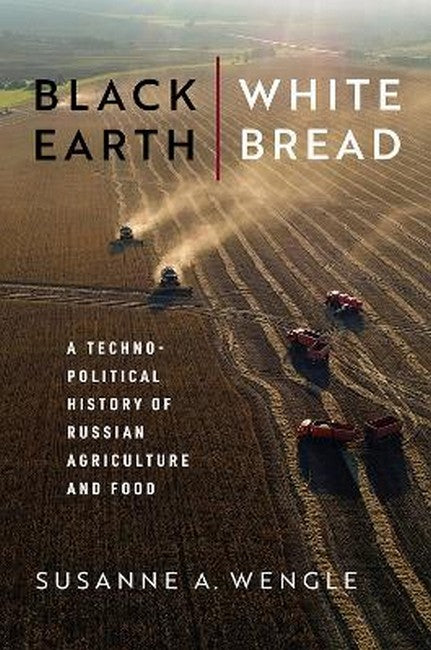Susanne A. Wengle is the Nancy R. Dreux associate professor of political science at the University of Notre Dame and the author of Post-Soviet Power: State-Led Development and Russia's Marketization.
Request Academic Copy
Please copy the ISBN for submitting review copy form
Description
List of Illustrations Introduction: Setting the Table 1. Governance; or, How to Solve the Grain Problem? 2. Production 3. Consumption; or, The Perestroika of the Quotidian 4. Nature Conclusion: Vulnerabilities Notes Bibliography Index
"A comprehensive and very refreshing technopolitical history of Russia's agrifood system. Wengle's nuanced account of Russia's remarkable rise from a Soviet-era food importer to a rising global powerhouse has resulted in a timely book--a tour de force that is nonetheless narrated in an extremely concise and lively way."--Oane Visser, International Institute for Social Studies, Erasmus University Rotterdam "This eminently readable book, based on fascinating research, serves as an urgent reminder that techno-scientific projects in agriculture have deep histories and variegated geographies, and thus are hardly an invention of Silicon Valley start-up culture."--Julie Guthman, University of California, Santa Cruz "Who eats what? Susanne A. Wengle's important and gripping book recasts a century of Russian history as a series of revolutionary transformations of the country's food system. Answers to problems of food production and consumption are central pillars of political power and legitimacy for communist and post-communist regimes alike."--Henry Thomson, Arizona State University "Excellent. . . . A fascinating account of the factors that have determined food production in Russia and the implications for the state's political legitimacy, the population's food security, and the natural environment. . . . Black Earth, White Bread is essential reading for anyone interested in the past and future of Russia's food system."-- "Journal of Modern History" "Unusually timely. . . . As the next chapter of this history of being written before our eyes, Black Earth, White Bread provides important historical context to facilitate an understanding of both Russia's recent ascent to one of the dominant players in the global food system and the political significance of food in Putin's Russia."--Jahrbuecher fuer Geschichte Osteuropas "Offers a novel approach to the transformations of Soviet and post-Soviet agriculture, emphasizing the connections between the state, production, and technology, as well as consumers and nature, the latter two often neglected in political science."--Foreign Affairs "Offers rich insights into the past 100 years of Russian food production, distribution, consumption and politics. . . . Offers important new perspectives on the study of the Russian food system, and food systems more generally."--Europe-Asia Studies "The author impressively shows how unique yet globally integrated the Soviet and post-Soviet system of food production was and is, and how politics, everyday cultural practices, and technological change shaped these modes of production."--Frankfurter Allgemeine Zeitung "Challenges you to think beyond the confines of your respective specialty and consider big themes in agricultural history and policy. . . . Wengle should be commended for her lucid prose and sharp analysis, as well as the inclusion of several maps created by the author herself."--H-Net Reviews

